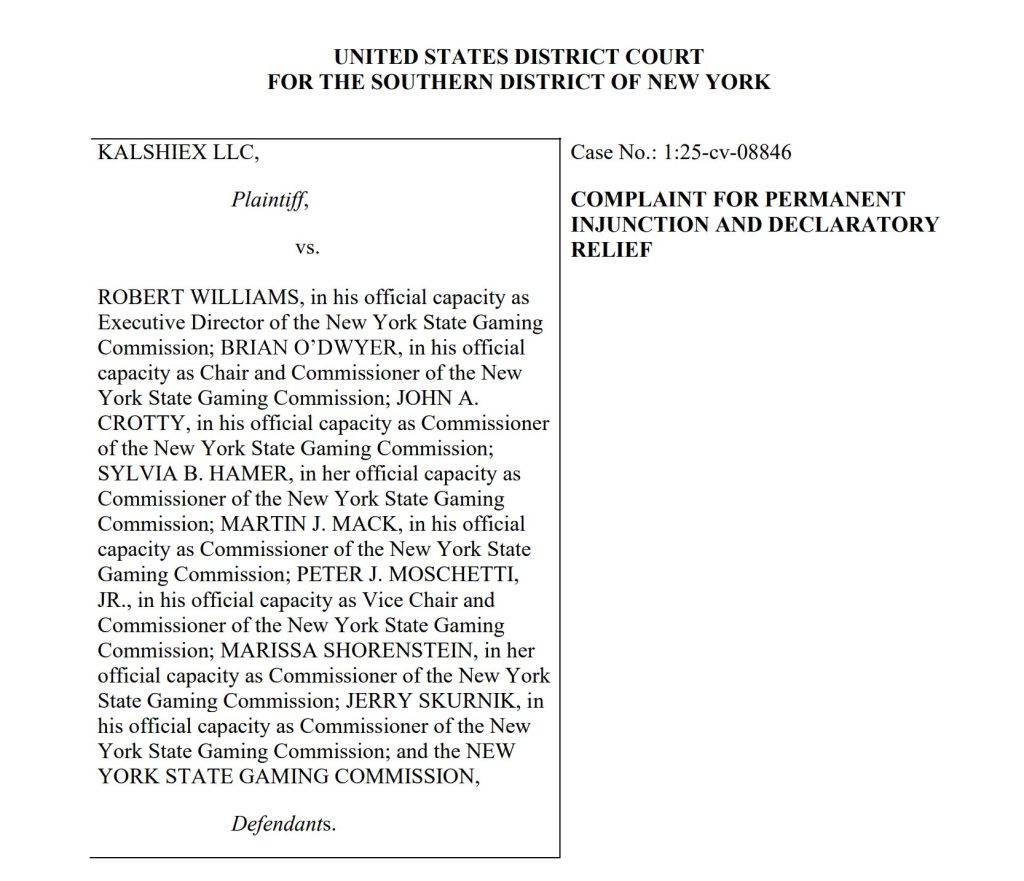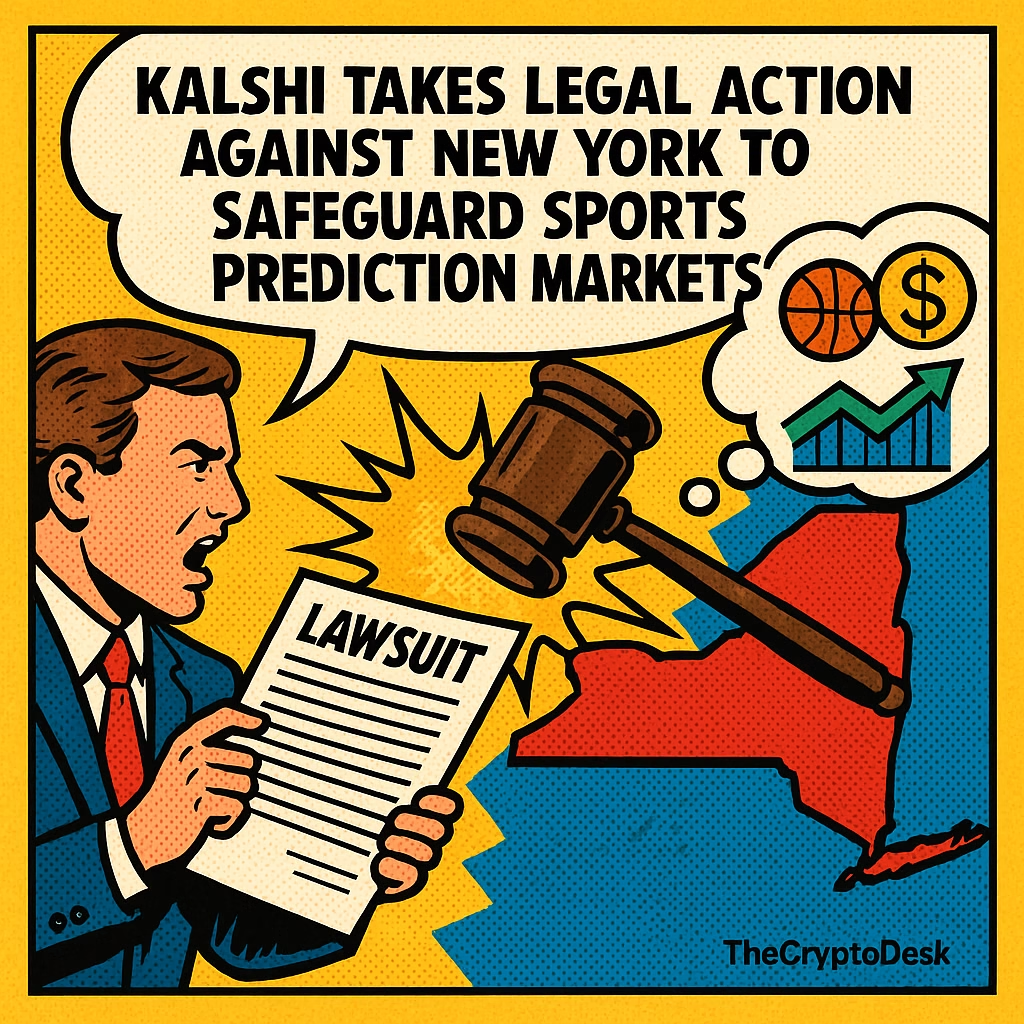In a bold legal maneuver, Kalshi, a federally regulated derivatives exchange, has turned to the courts to challenge the New York State Gaming Commission’s attempt to shut down its innovative sports prediction markets. With a lawsuit filed in the United States District Court for the Southern District of New York under the title KalshiEX LLC v. Robert Williams, the exchange argues that state actions are not just intrusive but also violate the federal authority governing derivatives trading.
 Dynamic legal landscapes intensify in the world of sports prediction markets.
Dynamic legal landscapes intensify in the world of sports prediction markets.
This legal dispute arose when state regulators slapped Kalshi with a cease-and-desist order on October 24, 2025, alleging that its platform’s sports-related contracts treaded on illegal gambling territory under New York law. The commission demanded that Kalshi halt its operations within the state, presenting a significant challenge to the burgeoning prediction market industry.
Kalshi maintains that its activities are fully protected under federal law. It argues that Congress has bestowed the Commodity Futures Trading Commission (CFTC) with exclusive jurisdiction over derivatives trading on designated contract markets. According to Kalshi, the New York State Gaming Commission’s intervention is both field-preempted and conflict-preempted under the Supremacy Clause of the U.S. Constitution, raising crucial questions about the balance of power between state and federal regulations.
The stakes are high. Kalshi has operated as a CFTC-designated contract market since 2020, after meeting rigorous regulatory standards set by the commission. This designation allows Kalshi to offer various event contracts, including those for significant sports outcomes like NCAA tournament advancements and even the winner of the U.S. Open Golf Championship, which it self-certified under federal law on January 22, 2025.
👨⚖️ @Kalshi has filed a lawsuit against the Nevada Gaming Control Board and the New Jersey Division of Gaming Enforcement.#Kalshi #Crypto https://t.co/hgPBmcFV1i— Cryptonews.com (@cryptonews) March 30, 2025
However, the New York Gaming Commission refutes Kalshi’s assertions, arguing that these sports-based contracts amount to sports wagering under state law, which is tightly regulated and requires a specific license to operate. With the threat of civil penalties and possible criminal prosecution, the commission is intent on maintaining a strict oversight regime for gambling activities within its jurisdiction.
This clash doesn’t just impact Kalshi; it has broader implications for prediction markets nationwide. The ongoing conflict highlights a growing schism between state and federal regulatory philosophies, especially concerning new financial technologies. Kalshi isn’t alone in this fight; Robinhood recently filed lawsuits in both New Jersey and Nevada after being warned against offering similar event contracts that state regulators deemed illegal.
👨🏻⚖️ @RobinhoodApp has sued Nevada and New Jersey, accusing the states of unfairly blocking its entry into the sports event contracts.#Robinhood #Crypto https://t.co/y6qGcRa09C— Cryptonews.com (@cryptonews) August 20, 2025
Event contracts, functioning as derivatives, attract a diverse range of stakeholders, from advertisers to sportsbooks. They enable market participants to hedge against economically significant sporting outcomes, creating a dynamic marketplace where contract prices fluctuate in tandem with evolving perceptions of event probabilities. Kalshi argues that obstructing access to federally sanctioned derivatives like these harms their business and threatens broader market integrity.
As Kalshi faces the stark possibility of being forced to implement inconsistent state-specific restrictions, the CFTC could also penalize them for noncompliance with vital national trading standards. The logistical challenge of designing systems to exclude specific state residents while maintaining platform cohesiveness could also compromise Kalshi’s standing under federal regulation—a gamble they are unwilling to take.
What’s more, this regulatory tussle echoes a wider trend emerging in New York, where efforts to impose tight regulations extend beyond prediction markets to include the digital asset sphere. Recently, state Assembly Member Phil Steck proposed a bill that would impose a 0.2% excise tax on all digital asset transactions, with the intent of funding substance abuse prevention initiatives in upstate schools. This move has raised eyebrows within the crypto community, as it places the burden of compliance on all participants in crypto transactions.
🇺🇸 New York Assembly bill seeks a 0.2% excise tax on crypto and NFT transactions, targeting the digital asset sector for substance abuse prevention funding.#Crypto #Tax https://t.co/fx48tYwUjA— Cryptonews.com (@cryptonews) August 15, 2025
As we witness New York’s regulatory landscape evolve, it’s clear that how jurisdictions navigate the balance between innovation and control will shape the future of both prediction markets and cryptocurrencies alike. In an age where technology and finance collide, everything hinges on the resolution of these pivotal legal battles. Stay tuned as we keep tabs on how this story unfolds and what it means for the future of trading platforms across the United States.
For readers keen to delve deeper into the nuances of cryptocurrency and regulatory trends, we recommend following trustworthy sources like the [CFTC](https://www.cftc.gov) and [Cryptonews.com](https://www.cryptonews.com) for ongoing updates.
